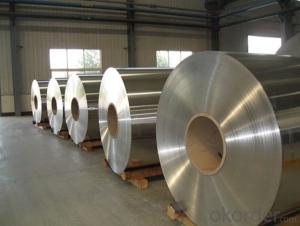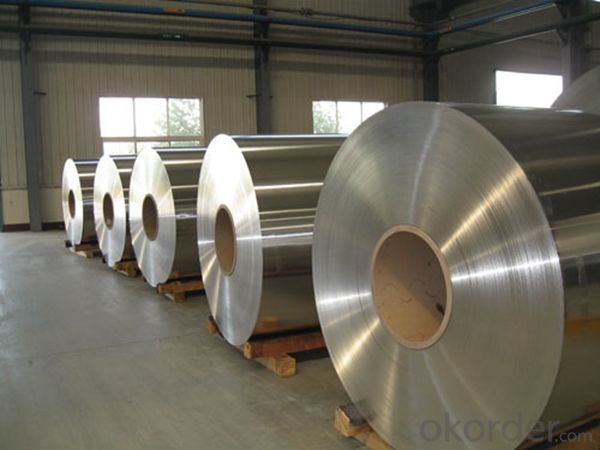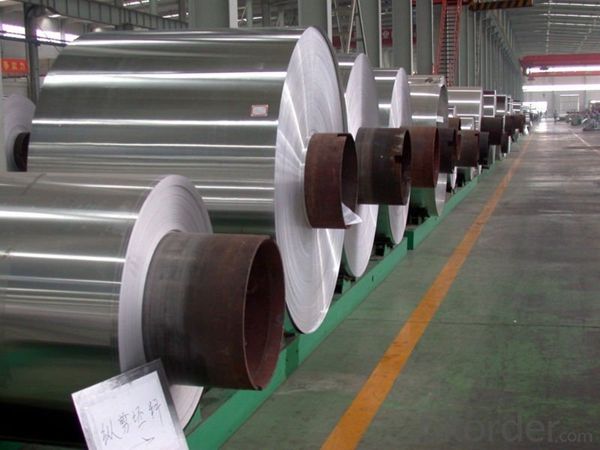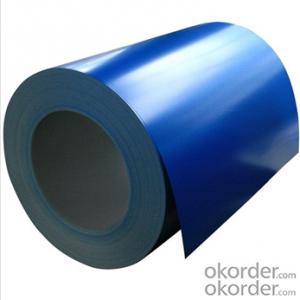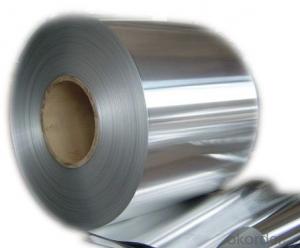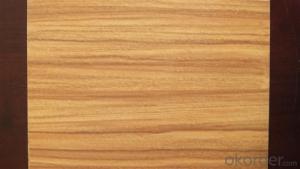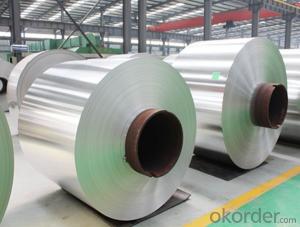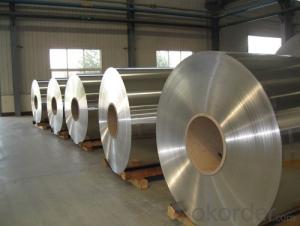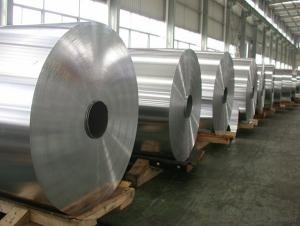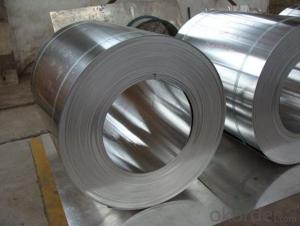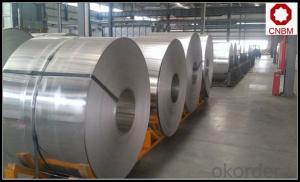Mill Finish Aluminum Coil Price Per Kg 1050 1060 1070 - China Factory Direct Supply
- Loading Port:
- Shanghai
- Payment Terms:
- TT OR LC
- Min Order Qty:
- 5 m.t.
- Supply Capability:
- 1000 m.t./month
OKorder Service Pledge
OKorder Financial Service
You Might Also Like
Specification
1. Specification of Mill Finish Aluminium 1050 1060 1070 China Factory Direct Supply
Alloy Number | AA5XXX |
Temper | H12, H14, H16, H18, H22, H24, H26, H32, HO, F |
Thickness | 0.1mm – 500mm |
Width | 10mm- 2200mm |
Standard | GB/T3880-2006, ASTM, ISO, EU standard |
2. Application of Mill Finish Aluminium 1050 1060 1070 China Factory Direct Supply
(1).Interior: wall cladding, ceilings, bathrooms, kitchens and balconies, shutters, doors...
(2).Exterior: wall cladding, facades, roofing, canopies, tunnels,column covers , renovations...
(3).Advertisement: display platforms, signboards, fascia, shop fronts...
3. Feature of Mill Finish Aluminium 1050 1060 1070 China Factory Direct Supply
Surfact Quality :
Be free from Oil Stain, Dent, Inclusion, Scratches, Stain, Oxide Dicoloration, Breaks, Corrosion, Roll Marks, Dirt Streaks and other defect which will interfere with use,
Mechenical Property:
Chemical Composite and Mechanical Property
4. Certificate:
SGS and ROHS(if client request, paid by client), MTC(plant provided), Certificate of Origin(FORM A, FORM E, CO), Bureau Veritas and SGS (if client request, paid by client), CIQS certificate
5. Image of Mill Finish Aluminium 1050 1060 1070 China Factory Direct Supply
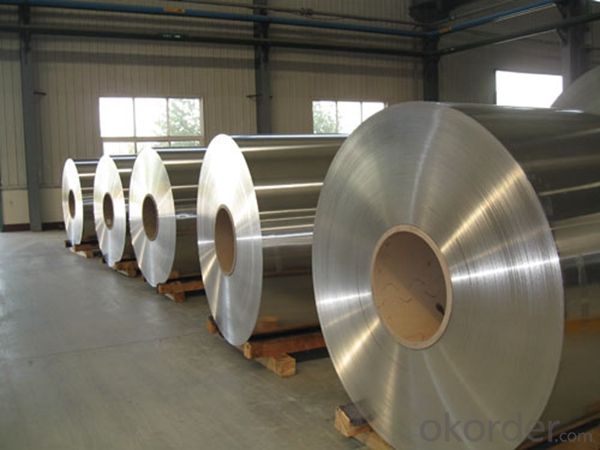
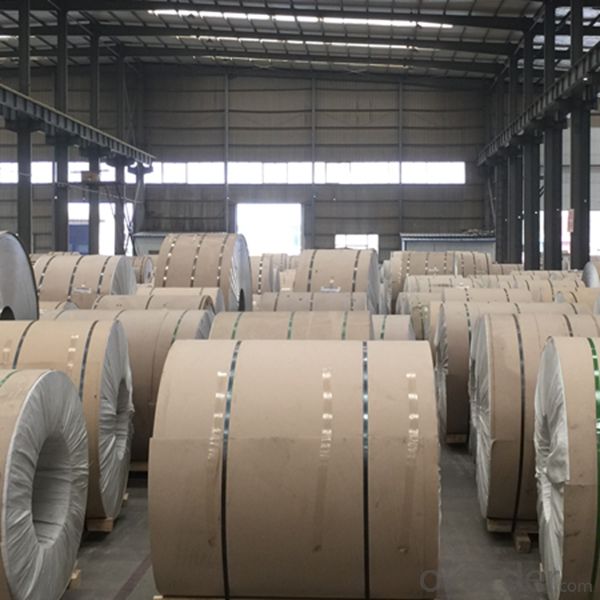
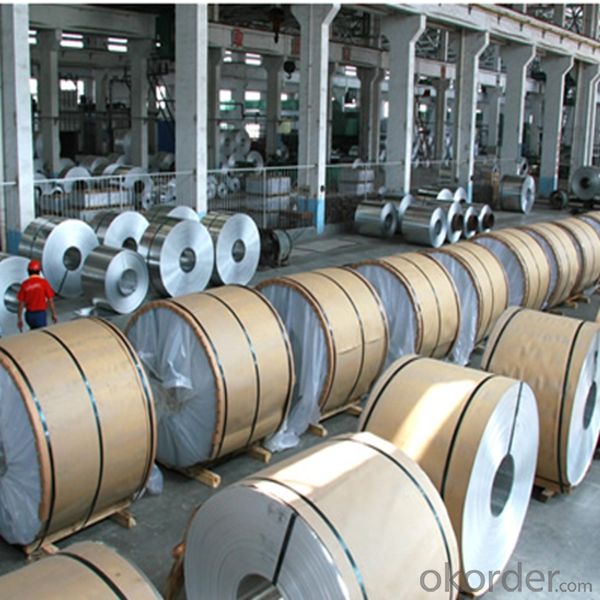
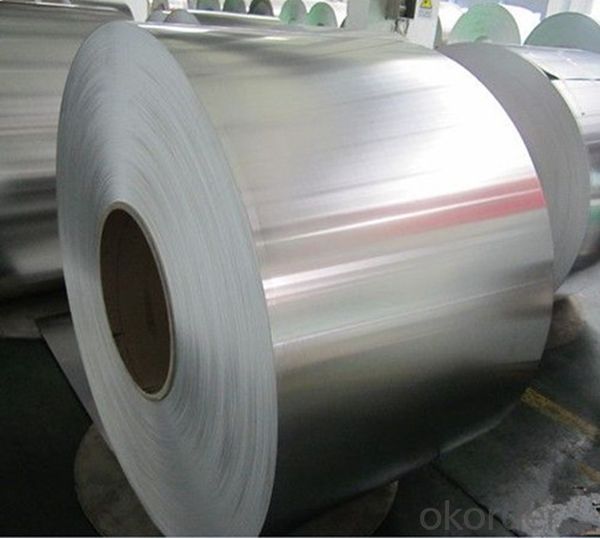
6. Package and shipping of Mill Finish Aluminium 1050 1060 1070 China Factory Direct Supply
First, plastic cloth with drying agent inside; Second, Pearl Wool ; Third, wooden cases with dry agent , fumigation wooden pallets, aluminum surface could cover blue PVC film
7. FAQ
1) What is the delivery time?
Dpends on actual order, around 20 to 35 days
2)What is the QC system:
We have QC staff of 20 persons and advanced equipment, each production is with MTC traced from Aluminum ingot lot.
3) What market do you mainly sell to?
Australia, America, Asia, Middle East, Western Europe, Africa etc
- Q: Can aluminum coils be used for sound insulation purposes?
- Yes, aluminum coils can be used for sound insulation purposes. Aluminum has excellent sound-dampening properties due to its density and ability to absorb and attenuate sound waves. Aluminum coils can be used in various applications such as in HVAC systems, automotive industry, and construction to reduce noise transmission. The coils can be installed in walls, ceilings, or ductwork to create a barrier that blocks or absorbs sound vibrations, thus improving sound insulation and reducing noise levels. Additionally, aluminum coils are lightweight, durable, and resistant to corrosion, making them a reliable choice for sound insulation solutions.
- Q: What are the different coil uncoiling options for aluminum coils?
- Aluminum coils have a range of coil uncoiling options available to them, catering to specific needs and requirements. One method commonly employed is manual uncoiling, where the coil is carefully unwound by hand. This approach is typically used for smaller coils or situations that demand precision and control. Manual uncoiling enables the delicate handling of the aluminum coil and is frequently favored in smaller scale operations. Another alternative is mechanical uncoiling, which employs machinery or equipment to unwind the coil. Mechanical uncoiling is suitable for larger coils or high-volume production. It facilitates faster and more efficient uncoiling, reducing the labor involved in the process. Moreover, specialized uncoiling machines exist to accommodate specific requirements. For instance, certain machines are designed to handle delicate or sensitive materials and offer features such as adjustable tension control to prevent any damage to the aluminum coil during uncoiling. Additionally, there are custom uncoiling solutions that can be tailored to meet specific needs. These solutions may employ different mechanisms or techniques to ensure the safe and efficient uncoiling of aluminum coils. Ultimately, the choice of coil uncoiling option depends on factors such as coil size, production volume, required precision, and any specific needs or constraints of the application.
- Q: Can aluminum coils be used in solar panel manufacturing?
- Solar panel manufacturing can incorporate aluminum coils as they are lightweight and durable. This material is widely utilized across industries, including the solar panel manufacturing sector, due to its exceptional thermal conductivity, resistance to corrosion, and cost-effectiveness. In the production of solar panels, aluminum coils are commonly employed to construct the frame or support structure for the photovoltaic cells. By fabricating and shaping the coils to the desired configuration, a robust and steady structure is achieved for the solar panel. Furthermore, aluminum is recyclable, making it an environmentally conscious option for the production of solar panels.
- Q: Why the end of the aluminum coil will have a yellow spot?
- The reason may be that the manufacturer is not cleaned, and must be carefully cleaned before coating, or there may be paint fall off phenomenon.
- Q: What is the typical coefficient of thermal expansion for aluminum coils?
- The typical coefficient of thermal expansion for aluminum coils is around 23.6 x 10^-6 per degree Celsius.
- Q: If so why does an aluminum bend or get nicked or break quickly?
- MPCheu is on the right track. Bending and getting nicked so it will break quickly are different things than strength and there are many different types of strength. Previous answers are correct regarding specific strength, say yield strength per unit mass because Al is much less dense than iron (the primary component of steel). It is also worth noting that there are many different types of steels and any one of these steels can have a very large range of mechanical properties. Same is true of aluminum alloys. The reason most airplanes are made using Al alloys is all about this specific strength and it is the same reason Al alloys are being replace by composite materials which have even higher specific strengths, densities about the same as Al but with much higher strengths. hope this helps
- Q: How do aluminum coils compare to other materials in terms of strength?
- Aluminum coils are known for their excellent strength-to-weight ratio, making them highly competitive compared to other materials. While materials like steel or copper may have higher absolute strength, aluminum coils offer comparable strength with significantly lighter weight, making them ideal for various applications where weight reduction is crucial.
- Q: How are aluminum coils typically stored and transported?
- Aluminum coils are typically stored and transported in a way that ensures their protection and prevents any damage. They are usually stored in a warehouse or storage facility where they are kept in a vertical position. This vertical storage helps to prevent any bending or warping of the coils. When it comes to transportation, aluminum coils are often transported using specialized coil trailers or flatbed trucks. These trailers are designed to securely hold the coils in place during transit. The coils are typically secured using straps or bands to prevent any movement or shifting while on the road. Additionally, it is common for aluminum coils to be wrapped in protective materials such as plastic or cardboard to provide an extra layer of protection against moisture, dirt, and other potential hazards during transportation. It is important to handle aluminum coils with care to avoid any damage, as even small dents or scratches can affect their performance. Therefore, proper storage and transport methods are crucial to ensure that the coils arrive at their destination in optimal condition.
- Q: Some manufactures (Kia, Hundai) use Iron blockswhileOther manufactures (Nissan, Chevy, ect.) use Aluminum blocks*****Is the point of using Iron blocks to increase long-term durability or temperature endurance??ORIs the use of Iron blocks simply an older, simpler technology (as compared to using Aluminum), the manufacture of which costs less money??And you would think that Aluminum weight savings would transer to better MPG, but the Kia gets very comparable mileage anyway.Thank you
- Aluminum's main advantages are weight and increased mpg for CAFE regulations. If you are going to keep your car to 150,000 miles eitheir block material will do. But if you are going to keep it 300,000 to the bitter, bitter end, you are better off with iron.
- Q: Can aluminum coils withstand extreme temperatures?
- Yes, aluminum coils are known for their ability to withstand extreme temperatures. Aluminum has a high melting point of 660.32°C (1220.58°F), which makes it ideal for use in applications that require resistance to heat. Aluminum coils are commonly used in HVAC systems, where they are exposed to both high and low temperatures. They are also used in automotive radiators, where they must endure high operating temperatures. Additionally, aluminum has excellent thermal conductivity, which allows it to efficiently transfer heat away from the coil, further enhancing its ability to withstand extreme temperatures. Overall, aluminum coils are a reliable and durable choice for applications that require resistance to extreme temperatures.
Send your message to us
Mill Finish Aluminum Coil Price Per Kg 1050 1060 1070 - China Factory Direct Supply
- Loading Port:
- Shanghai
- Payment Terms:
- TT OR LC
- Min Order Qty:
- 5 m.t.
- Supply Capability:
- 1000 m.t./month
OKorder Service Pledge
OKorder Financial Service
Similar products
Hot products
Hot Searches
Related keywords
